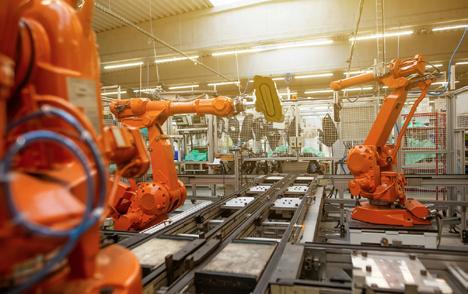GENERAL SITUATION IN MEXICO
Weekly Review I June 4, 2025



Weekly Review I June 4, 2025



TECHNOLOGY
• INITIATIVE WITH DRAFT DECREE TO ISSUE THE GENERAL LAW ON DIGITAL RIGHTS
Presented by: Parliamentary Group of Movimiento Ciudadano
Objective: Establishes a legal framework to guarantee digital rights, ensure ethical use of technology, prevent discrimination in digital environments, protect privacy, promote digital inclusion, and uphold the right to disconnect outside work hours.
Status: 2025-05-27 – Published in the Parliamentary Gazette
• INITIATIVE WITH DRAFT DECREE TO AMEND ARTICLE 153 OF THE GENERAL LAW OF ECOLOGICAL BALANCE AND ENVIRONMENTAL PROTECTION
Presented by: Deputy Amparo Lilia Olivares Castañeda (NL - PAN)
Objective: To establish that the importation of hazardous materials or waste for treatment, recycling, or reuse may only be authorized when its use complies with current laws, regulations, official Mexican standards, and other applicable provisions, and when there is proper environmental, economic, and health justification.
Status: 2025-05-27 – Published in the Parliamentary Gazette
• INITIATIVE WITH DRAFT DECREE TO AMEND VARIOUS PROVISIONS OF THE NATIONAL WATERS LAW
Presented by: Deputy Carlos Alberto Guevara Garza (NL - PVEM)
Objective: Establishes that CONAGUA, in coordination with the Basin Organizations, must work with the relevant municipal authorities to promote water culture principles within administrations and among the public. Special emphasis should be placed on shared responsibility in the efficient use of water resources and in preventing their waste.
Status: 2025-05-27 – Published in the Parliamentary Gazette


Index Zona Costa president Federico Serrano stated that a recent U.S. federal court ruling blocking tariffs imposed by former President Trump is a positive development for the manufacturing and export industry, highlighting it as a sign of respect for the rule of law and a check against unilateral decisions without congressional approval. He emphasized that such legal certainty is essential for encouraging investment, as uncertainty—especially around tariffs— discourages long-term planning. Serrano urged Mexico to follow the U.S. example in upholding legal frameworks to avoid arbitrary government actions. Despite some delayed or halted investments due to tariff-related uncertainty, coordinated efforts by Mexico’s federal government have helped mitigate negative impacts. The monthly Index Zona Costa meeting also featured presentations on judicial reform, business strategies, and labor justice innovations relevant to the industrial sector.
SOURCE : INDUSTRIAL NEWS BC


Governor Alfonso Durazo Montaño has secured a major win for Sonora’s economic development with the expansion of Humanscale in Nogales, attracting a $30 million investment and generating over 300 mostly specialized jobs. This project highlights the effectiveness of the Plan Sonora in positioning the state as a hub for sustainable industrial growth and innovation. The New Yorkbased company, which has operated in Nogales since 2017, continues its commitment to environmental responsibility through advanced manufacturing, water self-sufficiency, and clean energy use. Durazo emphasized that the trust placed in his administration and its socially driven, sustainability-focused policies has made Sonora a national and international model for responsible development.
SOURCE: NOTIO SONORA



CHIHUAHUA
The Universidad Autónoma de Chihuahua (UACh) and Canacintra Juárez have signed a collaboration agreement aimed at strengthening the industrial sector and developing young talent in Ciudad Juárez. The partnership focuses on aligning academic programs, particularly graduate studies, with industry needs to drive innovation and economic growth. Cristina Cabrera Ramos of UACh emphasized the strategic importance of the region’s industrial base, while Canacintra Juárez president Rosa Isela Molina highlighted the value of linking academia and industry for regional competitiveness. The agreement includes student internships, collaborative projects with faculty, continuous education, and professionalization efforts for industry workers, opening new opportunities for students and companies to jointly address real-world challenges.
SOURCE: EL HERALDO DE CHIHUAHUA

CAINTRA Nuevo León reaffirmed its commitment to strengthening technical education as a driver of social mobility and industrial competitiveness by highlighting the positive impact of its youth-focused programs. During a press conference, the organization reported strong results from two key initiatives: the Dual Education Model—now involving over 470 students, double from the previous year, with high graduation and employment rates—and the Business Alliance for Technical Education, which has supported over 700 youth through scholarships, mentoring, and skills development, including a specific focus on young women in technical fields. With goals to reach 1,000 students in 2025, CAINTRA emphasized the urgency of addressing the skilled labor shortage and called for more private sector participation, while acknowledging state government support in building a sustainable education-industry ecosystem for Nuevo León’s future.
SOURCE: MEXICO INDUSTRY



During an economic promotion tour in Spain, Aguascalientes Governor Tere Jiménez met with Madrid’s President Isabel Díaz Ayuso to strengthen economic, educational, and cultural ties. Spanish companies like Gestamp and Inditex reaffirmed their confidence in Aguascalientes as a strategic destination for foreign investment, attracted by its skilled workforce, security, and infrastructure. With 22 Spanish firms already operating in the state and bilateral trade reaching $88.7 million in 2024, Spain remains a key partner. Both regions share a commitment to high-value industries and talent development, reinforcing their potential for strategic collaboration.
SOURCE MEXICO INDUSTRY

Querétaro has officially integrated its Digital Technologies Cluster into the State Network of Clusters, marking its eighth strategic cluster and reinforcing its role as a national data hub. During the recognition ceremony, state officials emphasized the importance of collaboration between government, academia, and industry to attract investment, develop talent, and drive digital transformation. The cluster, supported by multimillion-dollar investments in data centers, aims to foster economic growth, stability, and best business practices. Leaders highlighted the need for inclusive digital advancement to improve public and private processes, positioning Querétaro as a leading force in Mexico’s technological evolution.
SOURCE: MEXICO INDUSTRY


The government of Mexico City launched the “Ciudad Iluminada: Camina Libre, Camina Segura” program with an unprecedented investment of 1,700 million pesos in 2025. The initiative aims to improve public lighting across 100 major avenues—covering over 382 kilometers—and in neighborhoods prioritized by the Casa por Casa program, focusing especially on safe school routes. Mayor Clara Brugada emphasized that lighting represents a strong government presence and community care. The strategy includes four pillars: major avenues, safe pathways, secure communities, and school routes. Additionally, 120 million pesos will be allocated to upgrade lighting across 48 kilometers of streets in the Historic Center, especially in the eastern zone. These upgrades will feature LEED-certified lights and solar panels, supporting energy efficiency and sustainability in partnership with the Federal Electricity Commission (CFE). The project is part of a broader urban infrastructure effort involving lighting, murals, and surveillance technology to enhance security and urban life.
SOURCE: CENTRO URBANO


Covestro has announced that its plant in Santa Clara, Ecatepec, State of Mexico, will now operate entirely on solar and wind energy. This shift will reduce between 3,000 and 3,500 tons of CO₂e per year— about 50% of the plant’s total emissions. Located in one of Mexico’s most polluted industrial regions, the move marks a major step toward environmental sustainability. Between 90% and 100% of the plant’s electricity will come from renewable sources, cutting fossil fuel dependency and improving energy efficiency. Covestro sees this transition not only as a technical upgrade but as a strategic investment in innovation and competitiveness. The initiative supports the company’s global goal to reduce Scope 1 and 2 emissions by 60% by 2030 and achieve climate neutrality by 2035. As part of its shift to a circular economy, Covestro also promotes alternative raw materials and advanced recycling technologies, aligning with the United Nations Sustainable Development Goals.
SOURCE: MEXICO INDUSTRY
With a $350 million investment, FRISA has inaugurated its new Hot Rolling Mill facility in the municipality of García, solidifying its position as a benchmark in advanced manufacturing in Mexico. The new plant, which is already generating over 450 direct jobs, enhances the company’s operational capacity to support high-value industries such as aerospace, semiconductors, wind energy, and power generation.
SWBC, headquartered in San Antonio, has inaugurated its new offices in Monterrey, backed by an initial investment of $2.8 million dollars. The company aims to generate 400 direct jobs in key areas such as technology, business management, collections, and customer service.
As part of its global growth strategy, Bühler Group has commenced construction of a new manufacturing facility at the Amistad Laguna Industrial Park in Coahuila, Mexico. This $52 million dollars investment, the outcome of three years of planning, is expected to generate 200 direct jobs and underscores the company’s commitment to strengthening its operations in Latin America.

Chinese company TYW Manufacturing has officially inaugurated its new plant at Parque Industrial Guanajuato, located along the Irapuato–Abasolo highway, with an investment of $50 million. The project is expected to generate 1,000 direct jobs and represents a strategic milestone in the company’s global expansion.
SOURCES: MEXICO INDUSTRY, EL ECONOMISTA, MEXICO NOW

Mexico remains a top destination for global manufacturers—and not just because of cost advantages. This blog explores the strategic factors driving investment, from Mexico’s skilled labor force and robust industrial infrastructure to its network of free trade agreements and geographic proximity to the U.S. It also touches on the country’s growing role in high-tech manufacturing and nearshoring strategies. Whether you’re in aerospace, electronics, or automotive, Mexico offers a stable, scalable platform for international expansion and long-term competitiveness in North America.
As Mexico phases out Advanced Pricing Agreements (APAs), Safe Harbor rules are becoming the new standard for foreign manufacturers operating under shelter programs. This blog explains how Safe Harbor impacts tax obligations, why it’s important for compliance, and what shelter service providers must do to stay aligned with SAT (Mexico’s tax authority). It also breaks down how the shift affects cost models and the importance of proactive planning. For companies using or considering shelter services in Mexico, understanding this evolving tax landscape is critical to minimizing risk.
